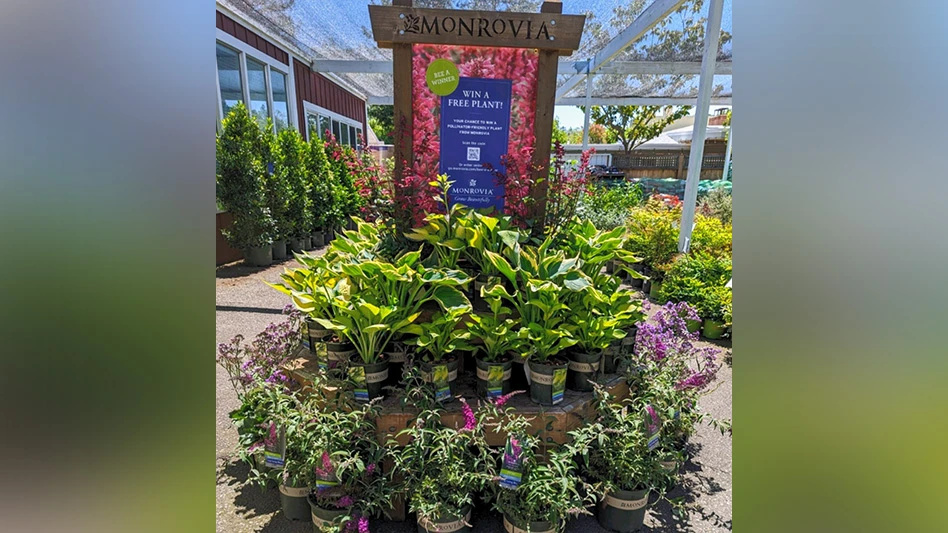
 Thinkstock.com |
More than a third of Americans own dogs, according to the American Veterinary Medical Association. Dogs! Those four legged buddies of ours that request attention, feeding and proper care every single day. Instead of looking at dogs like "pets," they become more members of our family than anything else. Not only do we incorporate them into our daily lives, but we also claim them as little extensions of ourselves.
It's common for dog owners and their canine companions to have complementary attributes and seem like they were meant to be together. Of that 36.5 percent of the population, you have to wonder how many of them have owned dogs their entire life. How many people started with dogs as small children and as they matured grew into well rounded adults with a constant need for a furry friend in their lives? The issue of dogs being expensive to care for doesn't seem to stop anyone from owning them, either.
The greatest quality of a pet owner, be it dog or cat, is the ability to nurture something and watch it grow and mature. They have an instinct to care for and love something - these are the exact people that you want in your store.
They've got what it takes to nourish and nurture something and help it survive. These are the people that should be buying houseplants.
 Houseplants are just like pets — they require proper care and attention to survive. |
Plants are pets, too
Houseplants, much like dogs, need attention. Unlike dogs, however, you can delegate how much time and effort you put into your foliage friend. When you are approached by a customer wanting to invest in a houseplant, chances are they DON'T claim to have a green thumb and they “kill all houseplants.” After so many failures, it's hard for people to try again.
It's like the old adage of trying to nail Jell-o to a wall, you can try and try and eventually you have to admit defeat and give up. That isn't the case with houseplants, however. There are common, easy to solve reasons why people have had failure in the first place, including:
- Improper plant selection – Many times people buy houseplants impulsively based on looks alone.
- Gifted plants – People think houseplants make great gifts, they don't.
- Wives tales – “My grandmother used to..." is your arch nemesis when it comes to houseplants.
- Overwatering – It never rains indoors, but then again, it only rains once in a while in the desert.
- Underestimation of lighting – Do these people REALLY know how much light they get?
The list can be daunting, and can be enough to turn people away from trying to grow houseplants all together, but it shouldn't, and you shouldn't let it! By knowing why people are experiencing failure, you can take steps to try and instill confidence in your customers and show them that growing houseplants is easy. Think of it this way, if that entire population of dog owners were to give up on dog ownership after a puppy’s first accident in the house, there wouldn't be very many dog owners, would there? So why should people give up so easy on houseplants? Easy, they haven't been given the skills or the confidence to try again.
Promise something possible
The world of houseplants is vast. You can easily take up your entire indoor selling area with nothing but different assortments of tropical and exotics, but that is overkill. What you need to do is select a hard fast dozen plants with different cultivars within that genus to offer your customers. Avoid the plants that seem to be problem prone such as certain coniferous plants (such as Norfolk Island pines that are prone to mealy bug). The absolute last thing you want to do is inform your customer that there just might be a possibility of it getting (fill in the blank). And \something that seems like a lot of work, like misting with a fine sprayer once a week, might seem like a challenge to the busy woman on the go. When selling the plant, make a promise of it actually being something possible for them to grow. Chinese evergreens are a fantastic example. They require nothing special and have great air purification qualities – two excellent selling points.
 B.B. Barns, The Garden Company co-owner Barney Bryant with his dog. Dogs are welcome in the store. |
Size it up
St. Bernards have no business in small urban apartments, and Chihuahuas would probably get lost in the vast acreage of a rolling countryside. There are suitable dogs for certain situations, and plants are the same way. Make sure you understand the requirements from your customer before suggesting a plant to purchase. By knowing the needs and the area that you need to fill, you’ll be better able to make the customer happy long term. The goal is for the customer to be able to enjoy the plant for years to come. Whenever they look at it fondly, they think of you. Imagine this, a lush Dracaena plant in the corner of your customer’s dining room. Every time that customer looks at it fondly, they will be filled with a sense of pride and satisfaction that they’re able to grow something. Think of it as a silent billboard right in front of your customers’ faces every single day. If it’s the improper plant, such as one that has gotten too big for the desired place, it will rapidly become a negative advertisement. Know the needs, and fill them.
Go the extra mile
Don't forget, people forget. It seems redundant, but it's true. After visiting your store and purchasing a new, exciting “Plant Pet," the customer will more than likely be on a shopper’s high. The adrenaline of something new in their life will eventually wear off and that passion for successful indoor gardening pursuits might get tossed like an out-of-style sweater. Don't let this happen. Remind your customers of why houseplants are awesome. If you create a newsletter, make sure you incorporate a quarterly houseplant care schedule. Devote a small blurb in the back to giving care tips on what should be happening in the world of houseplants. This will not only remind the customer that they have to nurture the foliage, but it will also remind them how exciting it was to buy a new plant to begin with.
Houseplants are gateway purchases
Pots, fertilizer, watering cans, saucers, moisture meters – the list goes on and on. Don't ever let a customer leave your store without having at least two tack-on items to go with their new plant pet purchase. Use simple, low pressure sales pitches such as:
- “By investing an extra couple of dollars in a moisture meter, you'll never have to guess if your plant needs water or not."
- “This is a great tool for somebody that tends to over love their plants."
- “Without food, you get weak. Plants are the same way. You don't want a weak plant, do you?"
- “You don't want to risk getting a pot ring on your table, so we better get you a saucer to go with that."
- “I think this pot complements the leaf tones of this plant perfectly. Wouldn't that look good on a dining room table?"
- “I have one of these."
Walk through a city park on any given weekend and you'll see bounds of people out walking, enjoying and sharing their lives with a four-legged friend. Typically, the owner and the pet look equally happy and are sharing in the exciting moment of being outdoors and companionship. They will more than likely make pet ownership a lifelong pursuit. Market your houseplants in the same manner. Make them lifers, and they WILL be back.
Nikki Weed is a horticulturist and professional adventurer who uses her experiences and knowledge to manage a successful garden center in Greenville, S.C. She can be reached at pepitaweed@gmail.com.

Explore the July 2013 Issue
Check out more from this issue and find your next story to read.
Latest from Garden Center
- This Florida garden center's busiest days are in the fall, not spring. Find out how they do it
- Terra Nova Nurseries releases new agastache variety, 'Peach Pearl'
- The Certified Shopify Online Garden Center provides local retailers with ecommerce tool
- Meet the All-America Selections AAS winners for 2025
- Endless Summer hydrangeas and Suntory Senetti glam up Grammys red carpet
- Ball Seed releases 2025 edition of 'Thrive and Flourish' for landscape and garden retail
- American Floral Endowment's Fred C. Gloeckner Foundation Research Fund accepting grant proposals
- Floral Marketing Fund and CalFlowers partner to advance floral industry





